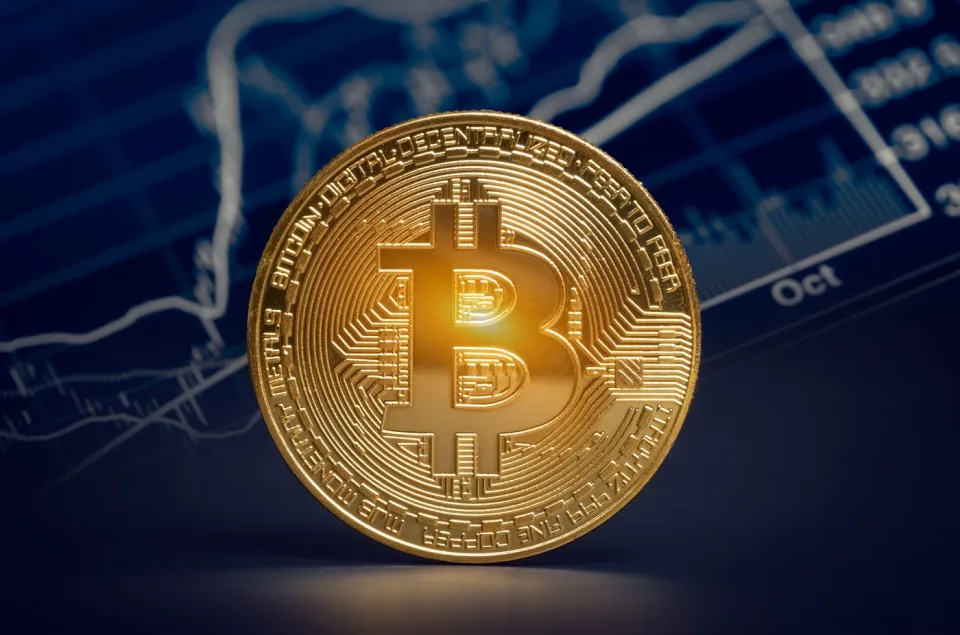At the current price of around $68,500, Bitcoin (CRYPTO: BTC) has a market capitalization of more than $1.35 trillion, which makes it the most valuable cryptocurrency in the world. In fact, it accounts for more than half of the total $2.55 trillion market cap of the entire crypto ecosystem.
But Ark Investment Management and its tech-investing leader, Cathie Wood, believe Bitcoin is destined to go much higher. Ark’s research suggests the cryptocurrency could soar 2,115% to almost $1.5 million by 2030 — but Wood herself came out with an even more bullish estimate recently, saying Bitcoin could rocket 5,453% to $3.8 million.
Investors’ enthusiasm for Bitcoin and the broader crypto industry is riding high at the moment, but widespread adoption remains far out of reach, so is Wood’s latest forecast realistic?
Bitcoin might never replace traditional money
Bitcoin enthusiasts often say the cryptocurrency is a valid candidate to replace traditional money because it is truly decentralized. It isn’t controlled by any person or institution, and its blockchain-based system of record is accurate and transparent.
I disagree with the idea it could replace existing currencies for a few reasons. The ability to control money supply allows governments and central banks (like the U.S. Federal Reserve) to cushion economic shocks during turbulent periods. Plus, different economies operate at different speeds, which is why some currencies are more valuable than others.
If every country adopted one currency, like Bitcoin, many exporting nations would lose one of the mechanisms by which they remain competitive. For example, two countries that export oil might have different production costs, because one might have higher labor standards than the other. As a result, that country would have to charge more money for exactly the same product. A weaker currency offsets some of that price difference for the purchaser, which allows the exporting country to compete with those that have lower production costs.
The benefits of each nation having its own currency were also observed when the United Kingdom voted to leave the European Union in 2016 (an event known as Brexit). Investors feared the U.K. would suffer economically from a decline in free trade with Europe, so they quickly devalued the British pound by 16% (relative to the U.S. dollar). Pessimism aside, it instantly made the U.K. far more competitive as an exporter on the global stage, thus cushioning some of the economic shock.
Theoretically, the only way Bitcoin could ever be adopted as “the” global currency is if every nation agreed to operate under one government, with common economic goals. Given the state of worldwide politics today, I’d bet my last dollar that won’t happen anytime soon.
Few consumers and businesses have willingly adopted Bitcoin so far
The reality today is that very few businesses are willing to accept Bitcoin as payment for goods and services, which means consumers don’t have much incentive to hold it except for speculative purposes. According to Cryptwerk, just 9,449 merchants accept Bitcoin, which is a drop in the bucket considering there are more than 300 million businesses registered globally.
Bitcoin crashed by 65% in 2022 and then climbed 255% in 2023. That level of volatility would make cash-flow management impossible for any business, which is another argument against its usefulness as a currency.
Ark Invest points to eight use cases for Bitcoin that could drive adoption by 2030. Most of them center around countries, companies, and consumers using Bitcoin to make payments and settle transactions. For the reasons I’ve already highlighted, I don’t like the odds of that happening on any large scale. But three of Ark’s potential use cases suggest Bitcoin could be used as a store of value instead:
- Digital gold: Ark believes Bitcoin could be treated like digital gold, which will create demand from multiple sources. While Bitcoin is volatile, its decentralized nature and its upward trajectory over the long term support its credibility as a store of value.
- Corporate treasury: If Bitcoin is viewed as a store of value, Ark thinks companies might hold a small portion of the cryptocurrency on their balance sheets. This could help offset inflationary pressures over time, for example.
- National treasury: Many global governments and central banks hold physical gold in their reserves. Again, Bitcoin could be a great addition to those reserves if it is viewed as a store of value.
The store-of-value argument won’t send Bitcoin to $3.8 million
At the Bitcoin Investor Day conference in March, Wood said the recent launch of Bitcoin exchange-traded funds (ETFs) could drive a flurry of demand from institutional investors. It’s a key reason she believes the cryptocurrency could soar 5,513% from here to $3.8 million by 2030, which is far above her own firm’s target of $1.5 million.
The problem with Wood’s forecast is that a price of $3.8 million per Bitcoin implies a final market cap of $79.8 trillion. It means Bitcoin would be nearly 3 times as valuable as the entire U.S. economy, based on the latest annual GDP figure of $28.3 trillion. It would also be 25 times as valuable as Microsoft, which is the world’s largest company today.
To me, that doesn’t seem realistic. After all, the existence of ETFs doesn’t suddenly make Bitcoin a viable currency worthy of widespread adoption. But as a store of value, it is conceivable that Bitcoin’s market capitalization might one day match that of gold, which currently stands at around $15.7 trillion.
That implies Bitcoin could trade at $817,000, which would be an upside of 1,094% from here. Therefore, the cryptocurrency could still deliver attractive gains if enough investors consider it a store of value, but I wouldn’t bet on it soaring 5,513% from here to meet Wood’s forecast.

